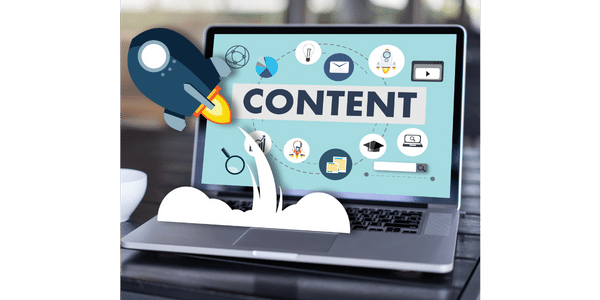Address
304 North Cardinal St.
Dorchester Center, MA 02124
Work Hours
Monday to Friday: 7AM - 7PM
Weekend: 10AM - 5PM
Address
304 North Cardinal St.
Dorchester Center, MA 02124
Work Hours
Monday to Friday: 7AM - 7PM
Weekend: 10AM - 5PM

With the ever-evolving landscape of technology, many companies are keen on embracing the latest trends to stay competitive. The real deal today is the incorporation of AI in marketing, a shift that’s causing ripples across the business world.
Today’s marketing strategies revolve around data – collecting, analyzing, and using it for informed decisions. With the rising importance of digital marketing, businesses must offer optimal customer experiences, and there’s no better way to achieve this than by leveraging machine learning.
88% of marketers believe their organization must increase its use of automation and AI to meet customer expectations and stay competitive.
Mailchimp 2023
Thanks to the growth of AI, businesses can now aim for better customer engagement and increased operational efficiency.
How is AI being used in marketing? From customer profiling to ad targeting and content creation, its capabilities are limitless. A study by the Influencer Marketing Hub in 2023 found that 55% of marketers believe AI will greatly enhance their marketing efforts. This is the best time for businesses to capitalize on and deliver personalized customer experiences.
Let’s look at how artificial intelligence bridges the gap between the massive data available and actionable marketing strategies.
In the era of big data, digital marketers need to filter down the essentials for effective marketing campaigns. But who should see your ads, and when? Artificial intelligence steps in here. Algorithms and specialized platforms allow the creation of tailored ads, effectively engaging the right people at the right time. You can even use it to evaluate your ads before publishing them, using machine learning to analyze past data and predict future trends. This ability to harness AI and big data effectively is a game-changer for businesses.

Another practical example of AI in marketing is customer profiling. The systems can gather significant marketing information to help make data-driven decisions. With the algorithms, campaigns can be targeted to specific customer groups.
48% of marketing leaders reported that AI made the most significant difference in how customers interact with their brands.
Semrush, 2021
Also, by hyper-targeting ads, the costs can be optimized while still maximizing ROI (return on investment). This way, businesses can reap the amazing benefits of AI.

Does AI work for marketing content? Absolutely!
With the new intelligence, marketers can analyze how customers interact with different content types. This data can be used to create personalized content, resulting in better engagement and lead generation. This is where a ChatGPT AI writing assistant comes in handy. In a pretty mind-boggling way, produces quality, SEO-friendly content that resonates with your audience.
Remarkably, 71% of marketers believe AI can outperform humans at their jobs including tasks like content creation.
Influencer Marketing Hub 2023
All the advances enable marketing teams to predict and analyze customers’ actions to improve their shopping experiences. The results are leading to more connections and conversions.
The advantages are pretty much endless. However, the following are the main ways we see:
You are wondering exactly how to use adapt. The first step is having a strategy. Ensure you set clear goals, gather high-quality data, and maintain data quality. By clearly defining an AI strategy for your business, you can confidently implement the new technology into your operations.
It is no longer a futuristic concept – it’s happening now. In fact, Semrush found in 2021 that 64% of B2B marketers consider it to be valuable in their marketing strategy. Additionally, Semrush discovered that an impressive 80% of marketers in 2020 already had chatbots as part of their customer experience strategy.
The ball is in your court to embrace this technology and take your marketing to new heights. And if you need a helping hand, my team at AI Dev Lab is always ready to assist you in developing the right systems and applications.
Marketing as we know it is getting a major shake-up thanks to artificial intelligence. AI in digital marketing is transforming how businesses connect with customers, creating more personalized, efficient, and impactful strategies. As businesses continue to adopt AI, the future of marketing promises deeper engagement and smarter solutions. You can count on that!
As we look into the future, it’s clear that it will continue to reshape the way businesses interact with their customers – and that’s something to get excited about!